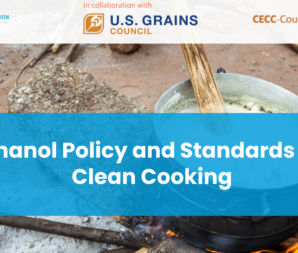From Waste to Fuel: Key Takeaways from the CECC Webinar on Alternative Feedstocks for Ethanol Production
Ethanol has emerged as an important renewable fuel for clean cooking, offering a sustainable alternative to traditional biomass and imported fossil fuels. Its adoption has the potential to significantly reduce indoor air pollution, lower greenhouse gas emissions, and enhance energy security, economic development, and gender empowerment, particularly in developing countries.
However, the sustainability and scalability of ethanol for clean cooking largely depend on the availability, affordability and accessibility of ethanol for the consumers. In that context local production and availability of alternative and sustainable feedstocks to sugar cane, that do not compete with food security is crucial. Currently, major ethanol clean cooking initiatives in countries like Kenya, Tanzania, Uganda, Ghana, and others depend primarily on molasses from sugar industries. But for large-scale adoption of ethanol as a clean cooking fuel, it is necessary to explore diverse feedstocks, such as cassava, sweet sorghum, cocoa waste, cashew apple and invasive species such as water hyacinth. Each feedstock presents unique economic, technical, and environmental opportunities and challenges.
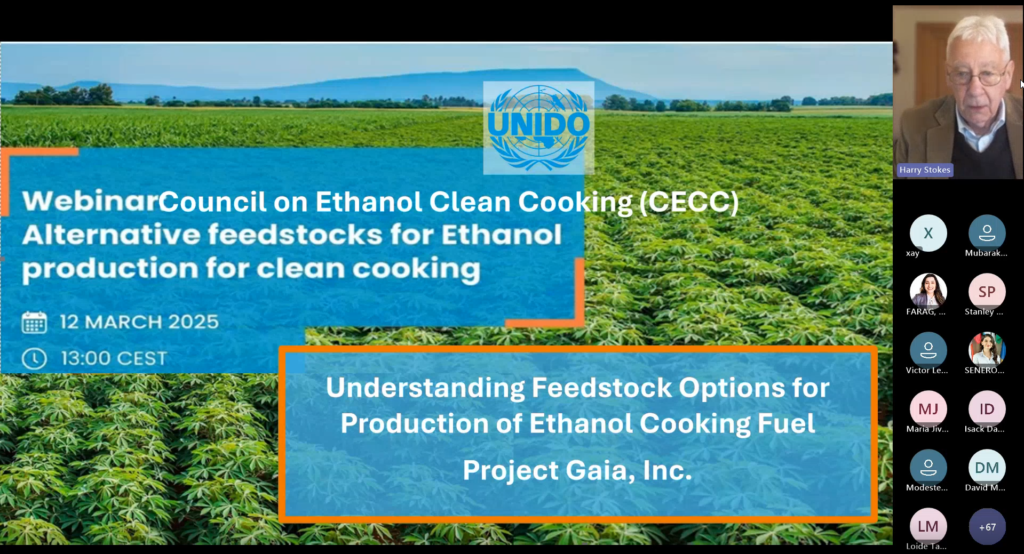
Insights from the Experts: Diverse Feedstocks for Ethanol Production
Harry Stokes emphasized the importance of local production of enzymes to reduce costs and improve ethanol processing efficiency. He also highlighted carbon credit mechanisms as a potential revenue source for ethanol projects, helping improve financial viability while promoting sustainability.
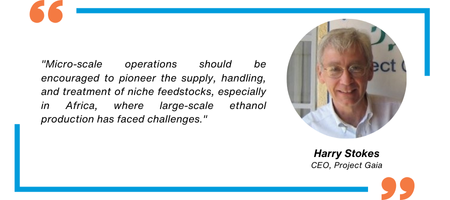
Victor Legogie shared insights from his 50,000-liter-per-day bioethanol project in Nigeria, which uses cassava as its primary feedstock. While cassava is widely cultivated and high in starch, he noted logistical challenges such as its high moisture content (70%), which affects storage and transport costs. His company aims to integrate ethanol production with biomass power, carbon capture, and animal feed production to create a zero-waste system.
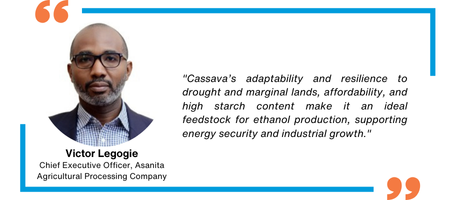
In Kenya, water hyacinth is an invasive species that clogs Lake Victoria, disrupting local ecosystems and livelihoods. Richard Arwa’s initiative converts water hyacinth into bioethanol, utilizing locally produced enzymes to break down cellulose into fermentable sugars. His micro-distillery model achieves 95% water recycling efficiency, demonstrating that small-scale ethanol production can be both economical and sustainable. His model of micro-distillery and fuel dispensing system with IOT tracking systems is poised for scaling.
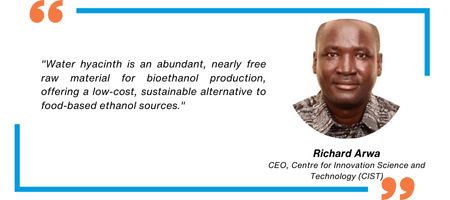
Hamisi Juma Tindwa discussed how Tanzania produces 2.3 million tonnes of cashew apples annually, yet most of it rots unused. His research aims to develop efficient collection and processing methods to convert this wasted resource into ethanol for clean cooking. Due to the short lifespan of cashew apples (around 70 hours before fermentation begins), innovative preservation techniques will be essential to make cashew-based ethanol a viable solution.
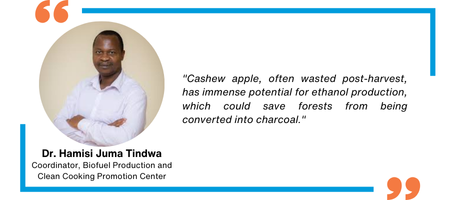
Stanley Alexander Phillipson explained that sweet sorghum is ideal for semi-arid regions due to its low water requirements and dual-purpose use—providing both grain for food and stalks for bioethanol. He stressed the importance of farmer adoption, irrigation efficiency, and sustainable land use practices to maximize yields and reduce costs.
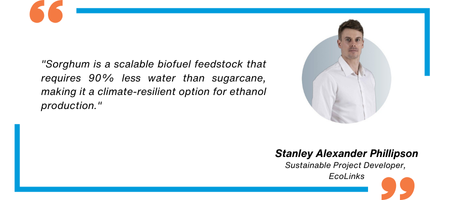
Driving Ethanol Adoption Through Policy and Investment
A key takeaway from the webinar was the crucial role of policy and investments in scaling alternative ethanol feedstocks. Strong regulatory frameworks, financial incentives, and strategic partnerships are essential to unlocking the full potential of feedstocks like water hyacinth, cashew apples, and sweet sorghum.
Summing up the discussion, Jossy Thomas (Project Manager, UNIDO) emphasized the broader impact of these efforts:
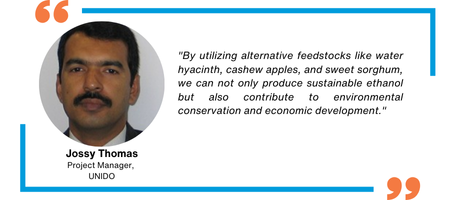
This webinar showcased innovative approaches to ethanol production and the importance of alternative feedstocks in making clean cooking more accessible and sustainable.
Watch the full webinar recording here: Webinar Alternative Feedstocks for Ethanol Production for Clean Cooking-20250312_134545-Meeting Recording.mp4


